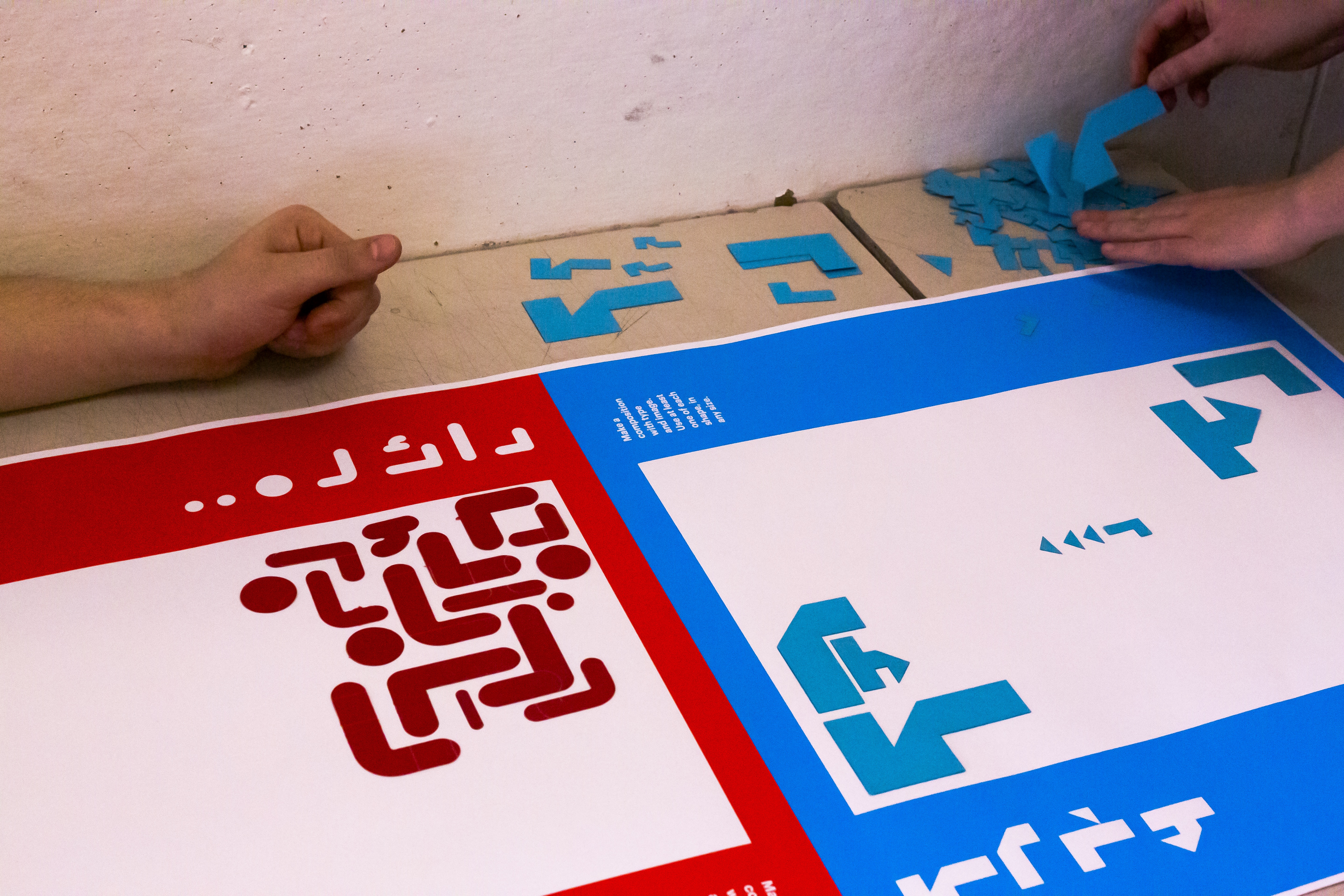Dear Arabic
Mohammed Nassem
→ MFA GD 2019
 Mohammed Nassem, Conditional Arabic Design, 2019. This conditional design game explores form-making through illegibility by introducing simplified Arabic letters as shapes for non-speakers of the language to make their own design compositions.
Mohammed Nassem, Conditional Arabic Design, 2019. This conditional design game explores form-making through illegibility by introducing simplified Arabic letters as shapes for non-speakers of the language to make their own design compositions.Dear Arabic,
What exactly are you to me? Our relationship has evolved so much over the years. You’re the first language I spoke, but English quickly replaced you. I learned English when I was five years old, and I really needed her soon after, when I started playing my first video game, Pokémon Yellow. Since then, all my adventures, in the realms where I caught monsters and played quidditch, have been in English. You were reality: mundane and restricting. She was, and very much remained, the language in which I dreamt. And with time and American education, her dominance grew.
Like all mother tongues, you gender your children. You structured the grammar of our home like an eloquent poem, each hemistich perfectly symmetrical. You have so many rules that only you can break, but when someone else does it, it’s irrational. You have your sanctity and respect—I can’t even curse in you without feeling bad. I associate you with elegance, piety, and chastity. But aren’t you also very sexual? From your symbolisms to your grammar, you’re obsessed with sex, gender, and power. You distinguish subject from object, your term for them comes with an explicitly gendered role—one active and another passive. One doing, the other being done upon. فاعل، و مفعول به.
And yet while your rules restrict me, sometimes your words, words that contain letters, embrace me. Sometimes your verbs aren’t about power, sometimes subject and object are symbiotic. I’ve realized ideal languages do not exist, because the problem is not with you as much as it is with patriarchy. And so I’m trying to have this conversation with you, my mother tongue. But now it’s complicated by our medium, my second language.
In the English-speaking reality of RISD, your sounds have become foreign, your expressions alien, and your right-to-left logic disorienting. It’s like you’ve become the language of dreams, and English the language of the mundane, and it feels impossible to explain the sublime through the ordinary. I grew frustrated trying to explain you, your peculiarities, and only getting question marks in return. I rebelled and doubled down on the validity of the illegible. But maybe we can come to a compromise. Maybe I can still experience you, find meaning in your form, and beauty in the space between what you are and what you are in translation: a space of loss, but like all unknowables, a potential space for inclusion, too.
Love,
ابنك

Mohammed Nassem is currently on much better terms with his mother tongue.